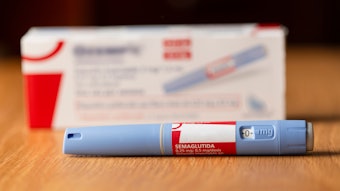
The American Society for Dermatologic Surgery (ASDS) is expressing its disappointment with the U.S. Preventive Service Task Force’s (USPSTF’s) updated skin cancer screening recommendation.
The USPSTF declined to take a stance on the value of preventive skin cancer screenings for the second time in seven years, saying there is insufficient evidence to make a recommendation on whether the benefits of routine screenings by a physician outweigh the harm. The task force, however, does recommend that adults who have already had skin cancer, those at high risk (e.g., fair-skinned, light eye color or history of significant sun exposure) or those with changes to their skin consult with their physician.
“Dermatologic surgeons—who are the experts in skin disease treatment—do not believe this ‘insufficient evidence’ recommendation is accurate. Screenings often lead to early detection and treatment, which lead to better outcomes and higher survival rates for patients,” said ASDS President Naomi Lawrence, MD. “Even those not at high risk for the disease can benefit from skin cancer screenings. Screenings can provide early detection when the disease is most curable as well as educate patients on the importance of skin self-exams and sun-safe behaviors.”
The American Society for Dermatologic Surgery Association (ASDSA) has worked to institute reforms at USPSTF. As a member of the Alliance for Specialty Medicine, ASDSA sent representatives to Capitol Hill for the second consecutive year to lobby for the passage of HR 1151, the “USPSTF Transparency and Accountability Act of 2015.” This legislation would require justification for USPSTF recommendations and publication of research plans as well as allow for public input.
Dr. Lawrence pointed out that it’s important for the public to understand the panel’s findings do not advise against skin cancer screenings. “ASDS member dermatologists are worried the public will misinterpret the findings and avoid regular screenings. Instead, the task force is making no recommendation,” she said.
She also said the recommendation downplays the significant value and potential savings of preventive care. “It’s a federally appointed task force designed to save money for the healthcare system, not necessarily to do what’s best for patients,” said Dr. Lawrence. “A failure to take preventive measures can result in larger healthcare costs in the long run.”
Photo copyright Getty Images.











